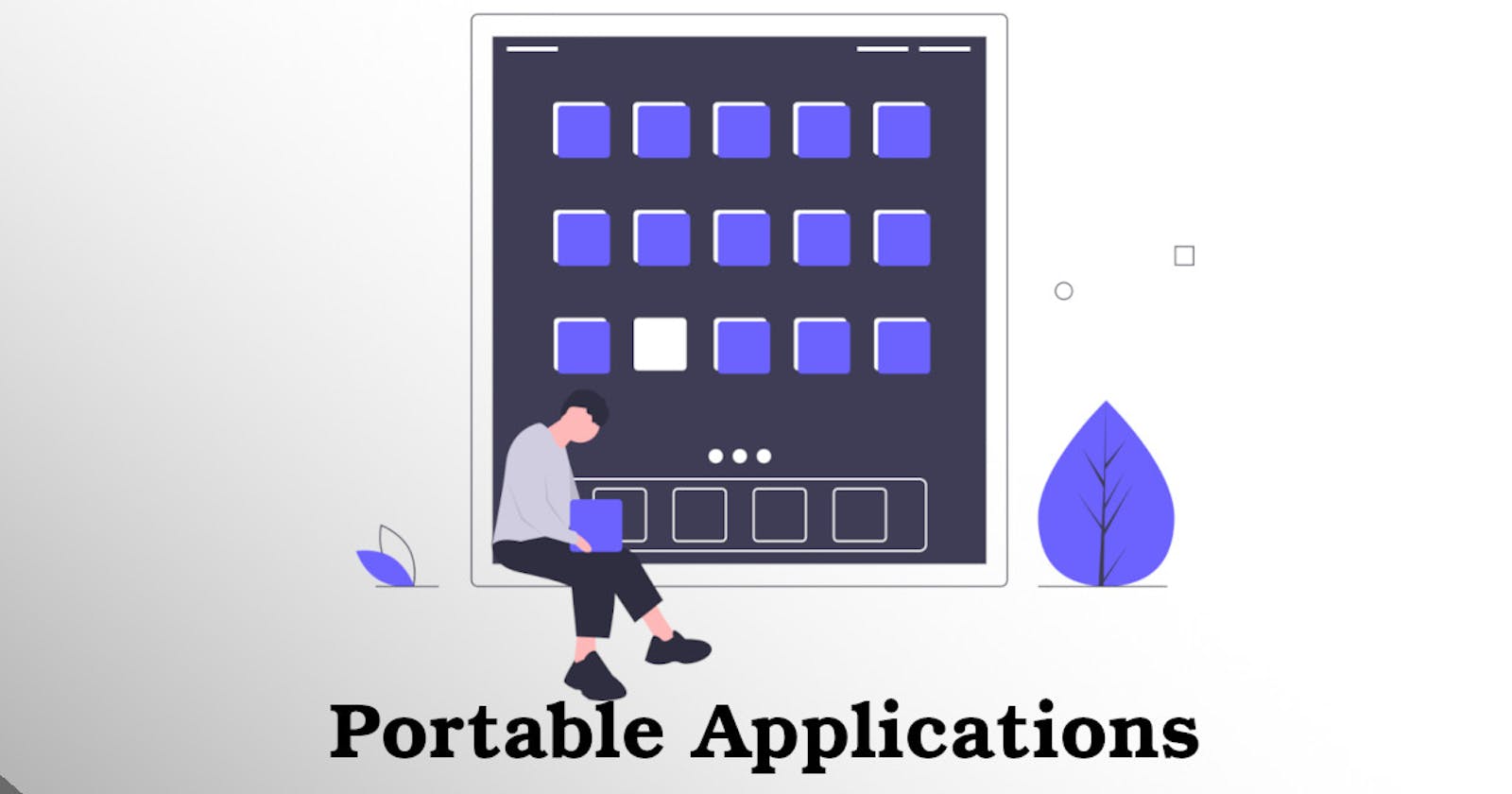Introducing Portable applications
Pros and cons of using portable apps for developers.
Brief Introduction to Portable apps.
Portable means carried or moved with ease. The app means a computer program.
Simply, we can define a portable app as a program without an installer. A portable app doesn't need to be installed on the computer. Standalone is another name we use for portable apps. Portable apps read and write their configuration settings usually in the folder where the portable application can be found. Also, it is worth to mention that some program doesn't have any configuration files. So, why actually we or software developers or programmers need to use portable apps?
Some advantages we can get from portable applications.
As a software developer or a programmer, probably, you are working with larger software projects. That means definitely you need more storage space to store your projects. As a solution for this, you can use many cloud storages or upgrading existing cloud storage packages or you can buy physical storage devices such as portable hard disks, USB devices or SSDs/HDDs. Some of these solutions are not very cheap. For a cheaper solution, you can use Portable applications for most cases. Portable applications can be stored on any data storage device. For example, Internal mass storage device, a file share, cloud storage and USB drives. Zero configuration portable apps can run from read-only storages like CD-ROMs and DVD-ROMs. So, you are not installing these applications into your PC. That means you can save some storage. isn't it great?. Sometimes, our installed software crashes due to various reasons or many issues pop up while installing software. To solve those issues or crashes, we have to completely uninstall them but the problem is some registry keys, configurations files will still store and hidden unknown to the user. (I had faced a lot of situations like this especially in windows OS and Graphic Softwares.) but, portable apps stay in their own folder and do not create new files or folders unknown to the user. Delete the corresponding folder and its content will uninstall the portable app you do not want to use. That means portable apps are easily uninstallable. Definitely, You are working with both Windows (For run Graphic Softwares like Adobe XD, Illustrator, Photoshop) and some kind of Linux distribution (For Programming tasks.) as a dual boot system (or maybe you are using separate devices or virtual machines.). Portable applications are very useful for dual boot systems because you don't need to install the same program on both operating systems and you don't need to worry about transfer program settings from the first OS to the second OS. Portable apps another major advantage is you can easily run the software you need with your settings on another computer. Also, it's worth mentioning that some Operating systems like AmigaOS all applications are portable applications. Sound like portable applications are good? but not so much. The universe needs a balance. Everything is not 100% good after all.
Disadvantages of Portable Applications.
The first point is Portable Applications not give you something like the "I can run all software" ticket. Portable applications must be compatible with the computer hardware. That means the System requirements of the Original software needs to match with your PC. ("Alan" not compatible with most portable applications. Alan is my PC. :-) ). Also, Portable applications need acceptable I/O speeds and a lot of storage space to use and save large size portable applications settings. That means some USB storage spaces, not enough. They are voltage sensitive and you have limited software choice. All software applications can not turn in to portable applications. Sometimes we have to reduce the original software performance to create the portable version of that software or application. The major problem is malicious portable applications. Sometimes, malicious codes are combined with portable applications. But this can be minimized if you are up-to-date with your antivirus applications, other Softwares and operating system.
you can find most portable applications in portableapps.com.
Finally below are some portable apps you can use.
Web Browsers:
Note-taking and document editing:
Graphics applications:
if you are wondering about making portable applications. You can check these guides in portableapps.com and makeuseof. In Linux distributions, you can use Appimage to make your own portable applications. You can read more about Appimage here. Also, it's a not a waste of time for learn something after all. So, I hope you enjoy this and Thank you for reading.
